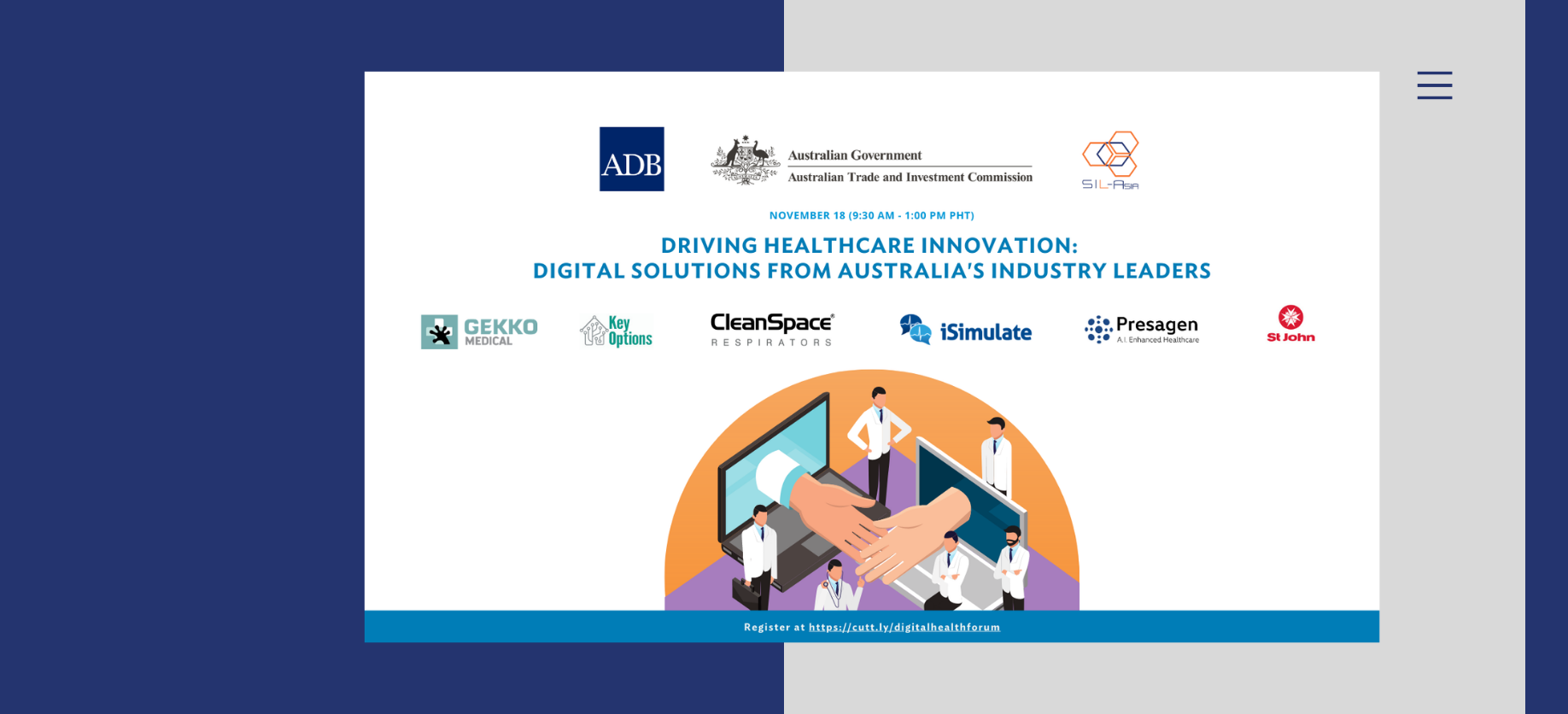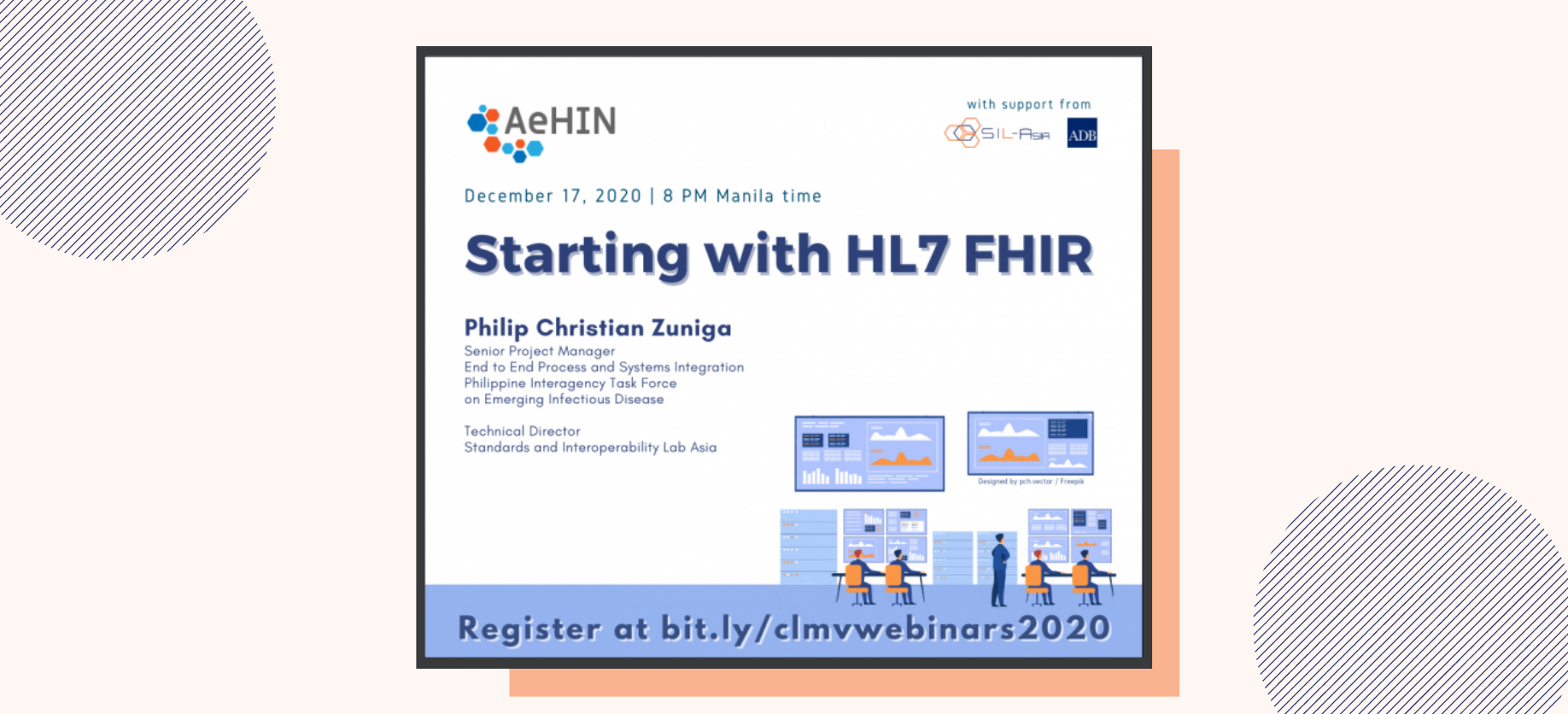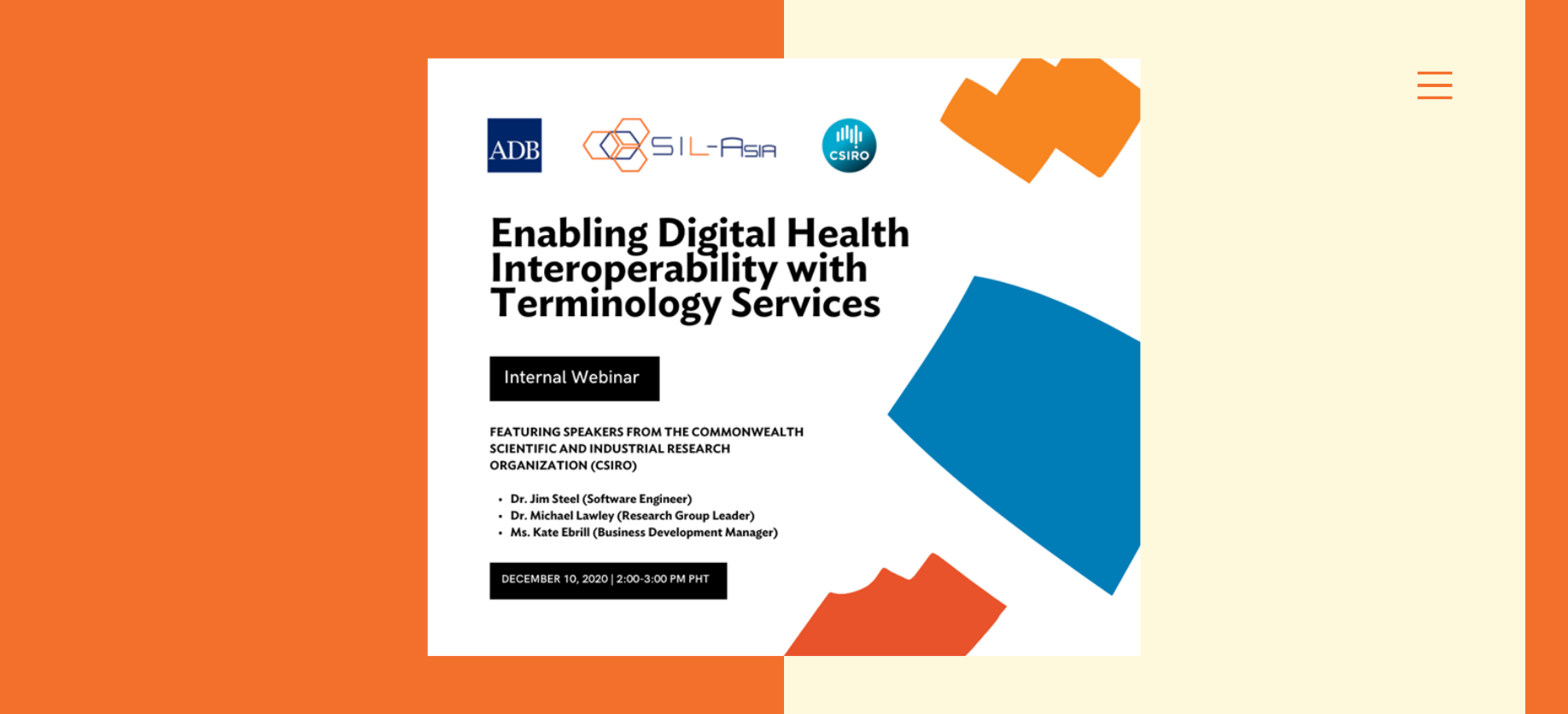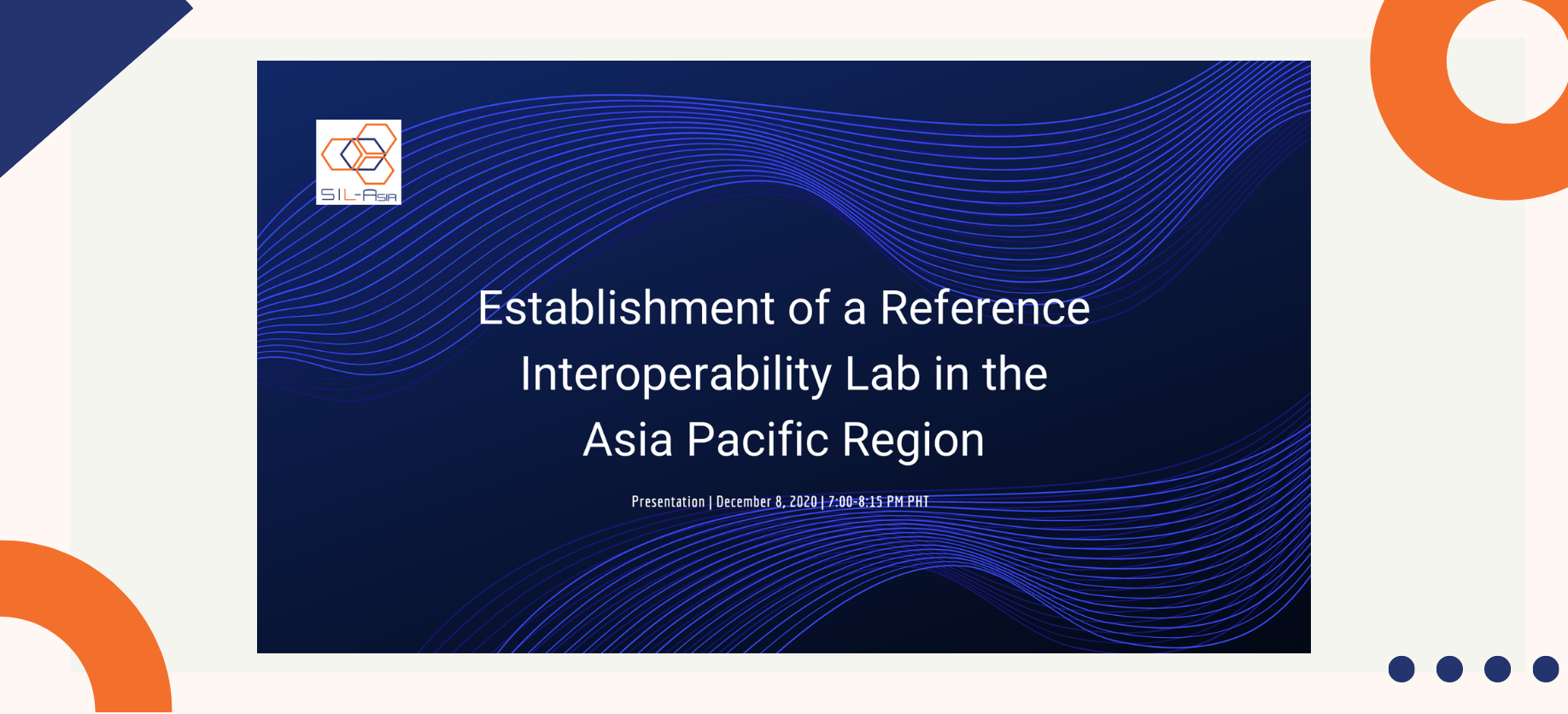VIRTUAL – The Standards and Interoperability Lab – Asia (SIL-Asia) co-presented ‘Driving Healthcare Innovation: Digital Solutions from Australia’s Industry Leaders’ with the Asian Development Bank (ADB) and Australian Trade and Investment Commission (Austrade) on November 18, 2020. This digital health forum with Australia-based technology providers featured two panel sessions.
Panel Session 1: Reimagining Digital Health in the Time of COVID-19
Digital health is continuously evolving as a new field to address the growing demands in healthcare service delivery. The onset of the COVID-19 pandemic has compounded prevailing health issues, such as insufficient clinical care, shortage of medical equipment, and lack of mechanisms in place for infection testing. In this session, industry leaders in digital health shared how their respective solutions can help address the COVID-19 pandemic.
- Gekko Medical designed and manufactured a ventilator for COVID-19 called ‘GeVentor.’ It was developed by globally experienced clinicians and researchers. Easy to use, the unit has simple start-up procedures but with additional and more sophisticated functionality. GeVentor is a highly robust unit. Users can transport it in regional and more remote environments.
- KeyOptions developed Virolens™, a COVID-19 screening device based on microscopic holographic imaging and artificial intelligence (AI) software technology. It uses a digital camera attached to a microscope to analyze saliva samples, with the data run through a computer which is trained to identify the virus from other cells, delivering an end result in just 20 seconds.
- CleanSpace offers ‘CleanSpace Halo,’ a lightweight compact powered respirator designed by biomedical engineers. It is ergonomic and has minimal parts (no cables, hoses, or helmets). CleanSpace Halo is suitable for coronavirus and is used by hospitals in Australia and overseas. It is reusable and can provide high protection for biohazards.
The first panel was moderated by Dr Raymond Francis Sarmiento, Clinical Lead and Terminology Services Expert of SIL-Asia.
Panel Session 2: Operationalizing Innovations in Healthcare Access and Delivery through Digital Health
Digital health has paved the way for innovative solutions to be adopted in healthcare access and delivery. One of these solutions is the use of artificial intelligence and machine learning in healthcare to support clinical decision making by healthcare providers. In this session, we witnessed how data science can enable the transformation of healthcare operations. Industry leaders in digital health shared how their respective solutions can operationalize innovations in healthcare access and delivery.
- iSimulate provides smart simulation solutions that are used by organizations across the world. They use the best of current mobile technology to create products that are more realistic, cost-effective, and simpler to use than traditional solutions. The flexible simulation systems allow training anytime and anywhere.
- Presagen is an Artificial Intelligence (AI) technology company that co-creates AI products with healthcare facilities while preserving data privacy and sharing commercial value. It revolutionizes healthcare data by leveraging AI for a shared benefit to clinics and patients anywhere in the world.
- St John’s Ambulance “First Aid without boundaries” currently train 400,000 people a year in Western Australia alone in face-to-face training. They have developed a digital first aid training tool with the aim to make first aid a part of everyone’s life. Digital training is now available via an app, online, and even virtual reality.
The second panel was moderated by Dr Michael Bainbridge, mHealth Consultant of the Asian Development Bank.
The concept for the Standards and Interoperability Lab – Asia was first conceived at the Regional Interoperability Workshop organized by AeHIN in Manila last August 2015 at the sidelines of the Global Health Research Forum. The regional lab was designed to serve as a template of labs in each country that will later form into the Community of Interoperability Labs (COIL).






